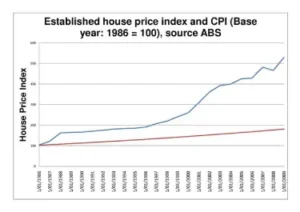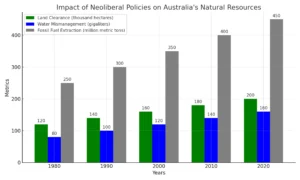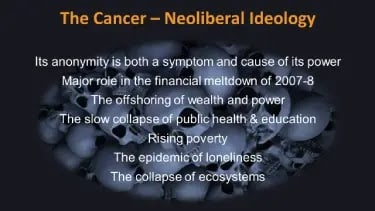Description:
Dive into how neoliberalism in Australia has reshaped Australia’s economy, society, and environment. Uncover the profound effects and debate solutions for a better future.
Neoliberalism in Australia casts a profound shadow over both Australia’s bustling cities and tranquil rural areas, fundamentally reshaping economic, societal, and environmental landscapes.
The Rise of Neoliberalism in Australia
Neoliberalism in Australia, with its core principles of free markets, reduced government intervention, and the primacy of individual responsibility, began reshaping Australian politics and economics during the late 20th century. Appearing as a response to perceived inefficiencies in post-war Keynesian economics, neoliberal ideology was embraced by successive governments, notably under the leadership of Prime Ministers Bob Hawke and Paul Keating (Labor) and John Howard (Liberal). This bipartisan shift marked a significant departure from Australia’s tradition of collective welfare and social equity.
Key Policy Shifts
1. Deregulation of Key Sectors: Financial deregulation in the 1980s allowed for greater competition in banking and finance, but also exposed the economy to global market volatility, as seen during the Global Financial Crisis of 2008.
2. Privatization of Public Assets: Public assets, including Qantas, Telstra, and key utilities, were sold under the banner of efficiency. While initially generating revenue, privatization often led to higher costs and diminished services for consumers.
3. Erosion of Worker Protections: Industrial relations reforms weakened union power and collective bargaining, prioritizing flexibility for employers over job security and wage growth for workers.
4. Cuts to Public Spending: Public services, such as health, education, and welfare, faced significant funding reductions. This fostered reliance on private providers, deepening inequality and limiting access for lower-income Australians.
Cultural and Social Impacts
The ideological emphasis on individual responsibility has shifted societal norms, diminishing the value placed on collective well-being. This has worsened issues such as housing affordability, job insecurity, and access to essential services, creating a divide between those who receive help from neoliberal policies and those who are left behind.
Reflection and the Path Forward
Understanding how neoliberalism in Australia became entrenched in politics is crucial for envisioning a fairer future. By critically analysing its impacts, policymakers and citizens can advocate for alternatives that prioritize public welfare, robust social safety nets, and sustainable economic development.
Key Figures and Policies
- Bob Hawke and Paul Keating (Labor): Initiated market-oriented reforms including financial deregulation and reducing tariffs.
- John Howard (Liberal): Furthered neoliberal agendas through major tax reforms, further privatization, and labor deregulation with WorkChoices.
Economic Shifts and Their Social Repercussions
Originally a land of stable, long-term employment, Australia now sees a job market characterized by flexibility—at the cost of job security, especially for the youth.
Job Market Evolution
– Pre-1980s: Dominated by stable, full-time employment.
– Post-Neoliberalism:
– Surge in casual and part-time jobs.
– Rising underemployment, despite higher education levels.
– Increased job insecurity, contributing to mental health declines and delayed financial independence.
The transformation of the Australian economy under neoliberal policies has emphasized market solutions that often neglect social welfare.
Infographic: Evolution of Employment Types in Australia (2015 Data)
Housing and Social Inequality
The push towards market-led housing solutions has dramatically increased home prices, making ownership unattainable for many and exacerbating social inequalities.
Key Housing Statistics
– Median house prices have escalated by 150% since the 1990s.
– Homeownership among under-35s has dropped by 20%.
– Rent burdens have doubled in urban areas.
Line Graph: Trends in Housing Prices vs. Wage Growth (2015 Data)
Australian_House_Price_Index_2001_-_2019

These market-driven reforms have exacerbated social inequality, pushing the dream of homeownership out of reach for many Australians.
Environmental Degradation and Policy Neglect
Neoliberal policies have also steered environmental regulations to favor economic growth over sustainability, leading to significant ecological damage.
Deregulation and Its Consequences
– Weakened environmental protections, increased land clearing, and escalated fossil fuel exploitation.
– Significant biodiversity loss and increased pollution levels.
Bar Chart: Impact of Neoliberal Policies on Australia’s Natural Resources

The environmental impact of neoliberal policies in Australia includes weakened protections and increased exploitation of natural resources.
The Path Forward: Counter-Movements and Advocacy
In response to these challenges, various community groups, NGOs, and labor unions have mobilized to advocate for a shift away from neoliberal policies, promoting more equitable and sustainable practices.
Community and Labor Responses
- Support Community Campaigns: Get involved with local groups advocating for affordable housing and robust public services.
- Join Labor Unions: Participate in movements fighting for job security and fair wages.
- Promote Environmental Activism: Engage with initiatives pushing for stringent environmental protections.
Quote: “The shift to a market-driven economy profoundly changed our cultural values, placing markets before community welfare.” – Paul Keating, Former Prime Minister
Educational and Social Justice Initiatives
– Movements advocating for accessible public education and social equity.
– Increased public investment in education to curb the rising student debt and privatization effects.
Reflecting on Neoliberalism’s Legacy
The journey through neoliberal impacts in Australia highlights a critical crossroads. The choices made now will decide the well-being of future generations and the health of our planet. Engage in community discussions, support policies promoting social equity and sustainability, and help shape a fair future.
Call to Action: Join the conversation on our forum, share your story, and explore how we can reverse neoliberal trends together.
Question for Readers: What specific impacts of neoliberalism have you noticed in your community, and what actions do you think could address these issues?
Reference:
https://australiainstitute.org.au/post/neoliberalism-poisoned-climate-action-and-renewables-are-the-antidote/
https://soe.dcceew.gov.au/land/graphs-maps-and-tables
https://espace.curtin.edu.au/bitstream/handle/20.500.11937/17572/129948_uncertain%20lives.pdf?sequence=2
https://youtu.be/hLtkJ-AgLuY
The Death of Social Democracy: Political Consequences in the 21st Century
Silencing Dissent
Housing affordability: a 21st century problem
Australia’s Housing Affordability Crisis
Revisiting Neoliberalism and Democracy in Contemporary Capitalism
Climate change in Australia
Work Choices: the low productivity road to an underclass
Australia’s welfare wars: The players, the politics and the ideologies
The Neoliberal State, Recognition and Indigenous Rights
The Politics of the Environment in Australia

